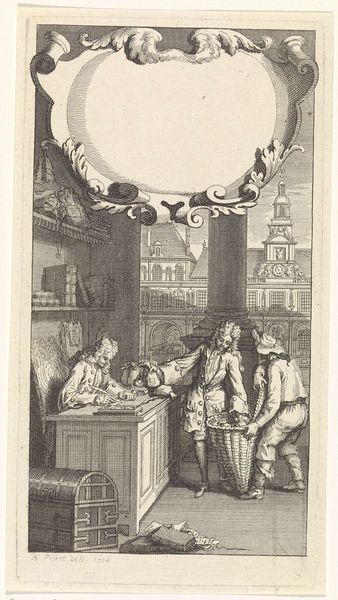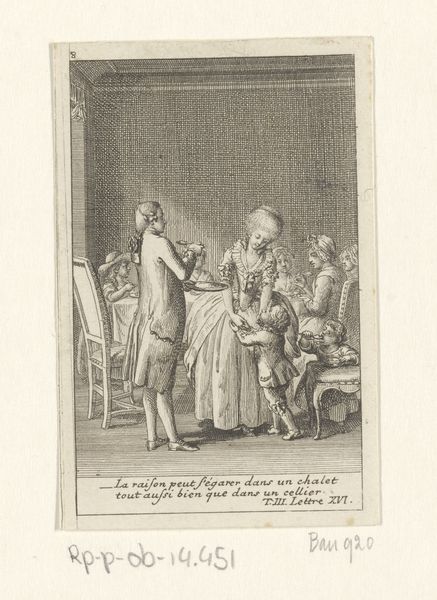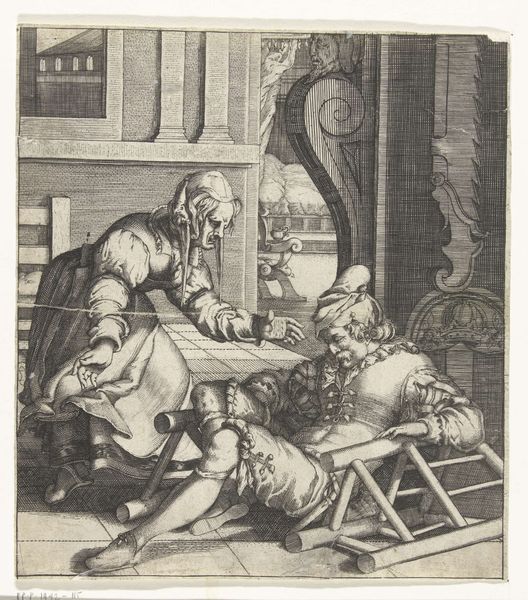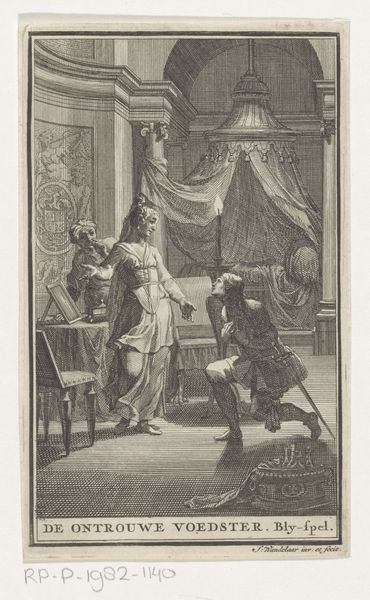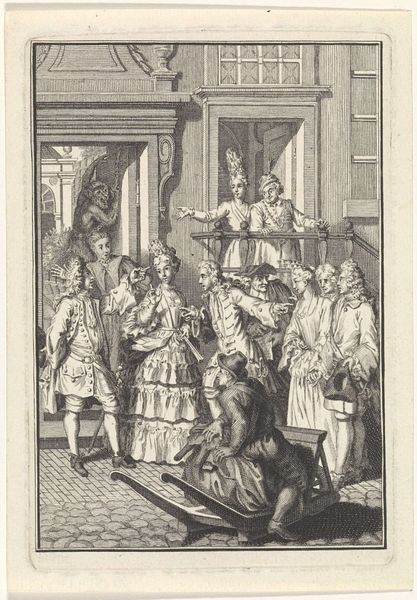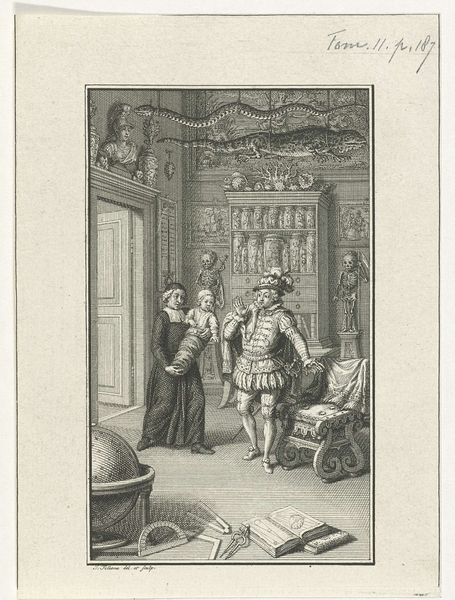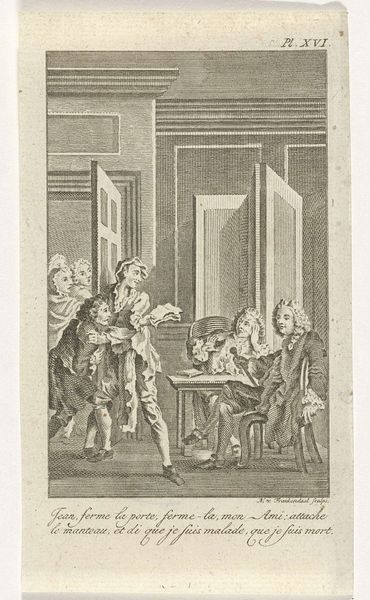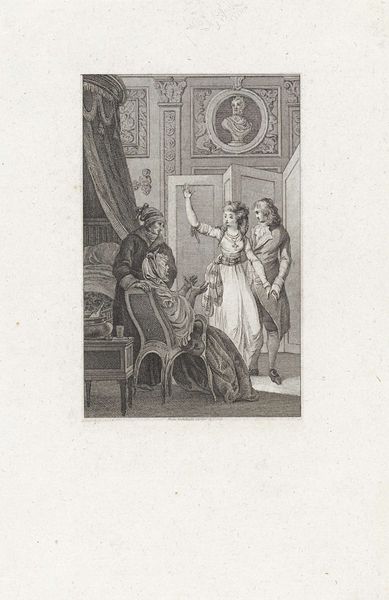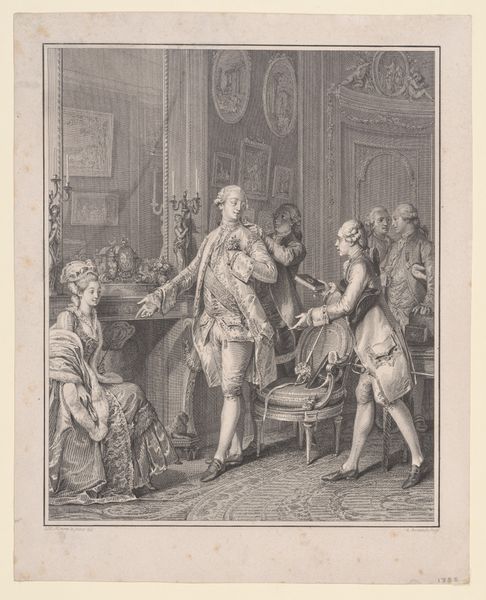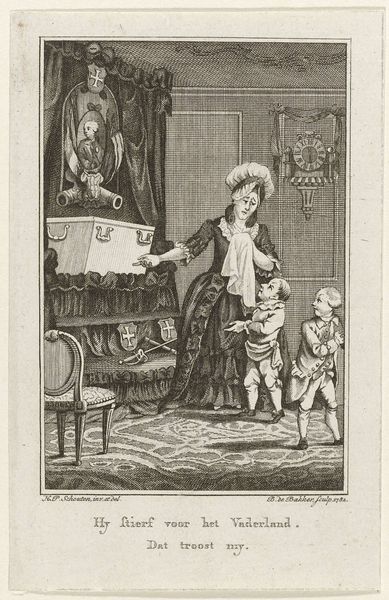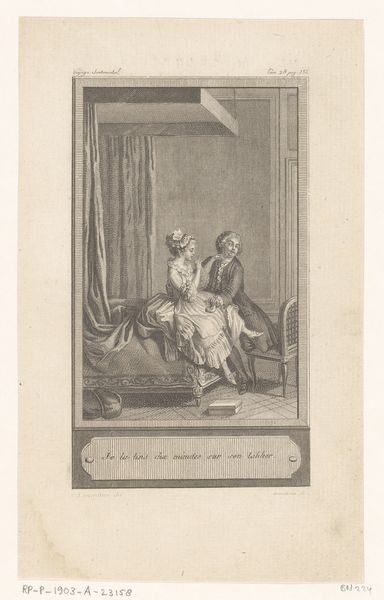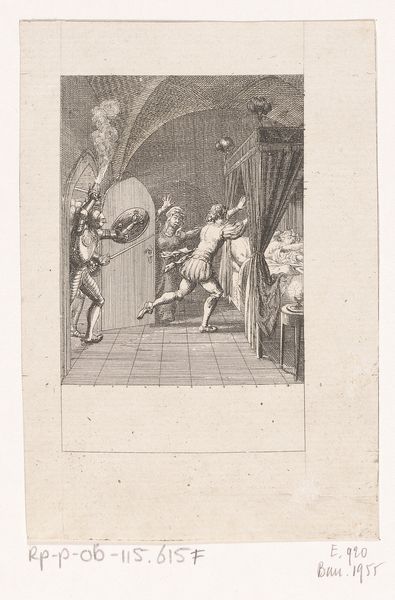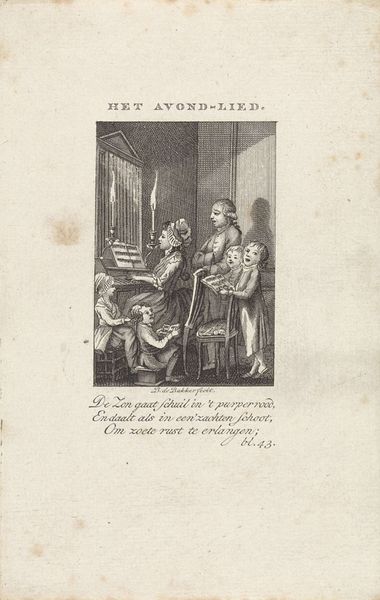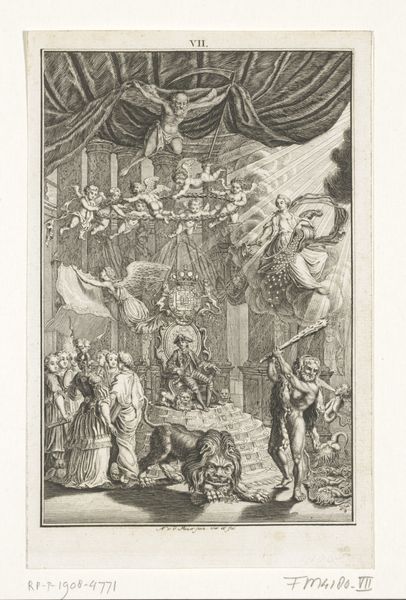
print, engraving
#
portrait
#
baroque
# print
#
pen illustration
#
line
#
genre-painting
#
history-painting
#
engraving
Dimensions: height 150 mm, width 89 mm
Copyright: Rijks Museum: Open Domain
Curator: At first glance, the energy in this image is captivating. Everyone seems consumed by academic and possibly political affairs. A figure stands offering insights to a man laboring intently at his desk. It’s as if knowledge is both performed and under construction here. Editor: Precisely. What you’re sensing reflects the artwork's purpose. What we have here is the title page of “Ceremonies and Religious Customs of All the Peoples of the World," from 1723. The author was Bernard Picart, who executed this drawing around 1704. Curator: The Baroque exuberance, right? It’s practically overflowing from the page. That florid frame above feels like a celebration of… what, intellectual vanity? Look at those cascading wigs, the intense postures! And then the room recedes, with more wigs arguing at the far table... Is that a window overlooking more wig-wearers? Editor: That exaggerated style suits its age perfectly. More than simple showmanship, that style carried serious ideological freight. Remember that during the late Baroque era, divine order, absolutism, and even the cosmos itself were expressed through highly embellished allegories. Here, though, we have insight into the Enlightenment ideal: collaborative study and observation. Curator: You see collaboration. I see the head honcho at the desk getting all the attention! Perhaps Picart is hinting at who really reaps the benefits from such communal knowledge? That other dude is offering a back massage while whispering into his ear. It's as if he wants all of the knowledge and all of the power, all at once! Editor: Perhaps there is an inherent imbalance. The focus indeed shifts toward a concentrated point—knowledge converging at one focal person... But note how all these details are delivered through carefully considered lines and engravings. Curator: Yes, that stark style enhances its effect and sharpens the social commentary! I think I’ll remember it more for its wry critique of intellectual life, and its hint about inequality in this period. The piece feels subtly rebellious for its time. Editor: And for me, I can reflect upon it more in line with the larger patterns of religious and cultural representation, understanding Picart's encyclopedic aim, that of illustrating humanity's myriad beliefs and customs, rather than making social critique a primary aim. Either way, it's a beautiful drawing—one ripe for conversation and close looking.
Comments
No comments
Be the first to comment and join the conversation on the ultimate creative platform.
